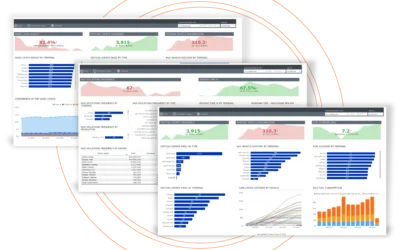In his presentation to the Regroupement des Professionnels en Sécurité Routière du Québec (RPSRQ), Benoit Vincent, engineer from PIT Group at FPInnovation, unveiled the results of their study on eco-driving, conducted with the financial support of Camo-route. In the report, PIT Group concluded that training drivers in eco-driving is not sufficient to maximize and maintain long-term fuel economy – the detailed and frequent monitoring of driver performance is the key to success.
The study was conducted among three driver groups: a control group, a group trained in eco-driving and a final group who received training and periodic monitoring. Periodic monitoring of the last group was performed using ISAAC InMetrics performance reports, based on more than 40 distinct parameters sampled ten times per second and allowing for a unique degree of accuracy.
It turned out that drivers who received periodic performance monitoring saved more fuel than those without feedback. In addition, they were the only ones who maintained eco-driving techniques during the three months following the training. This allowed them to maintain, for the duration of the study, substantial fuel savings totaling 8% to 15%, as shown in the chart below. Without the feedback ISAAC’s telemetry allows for, other drivers quickly returned to their old habits, thus losing all the effects of the training received a few months earlier.
“Moreover, good driving habits not only affect fuel consumption, but also have a positive impact on safety.” observed Benoît Vincent, “For some drivers, we observed a reduction in hard braking of nearly 80%. Overall, the study revealed a significant improvement in certain driving habits such as lower engine speeds and a reduction in aggressive acceleration and hard braking as previously mentioned.”









